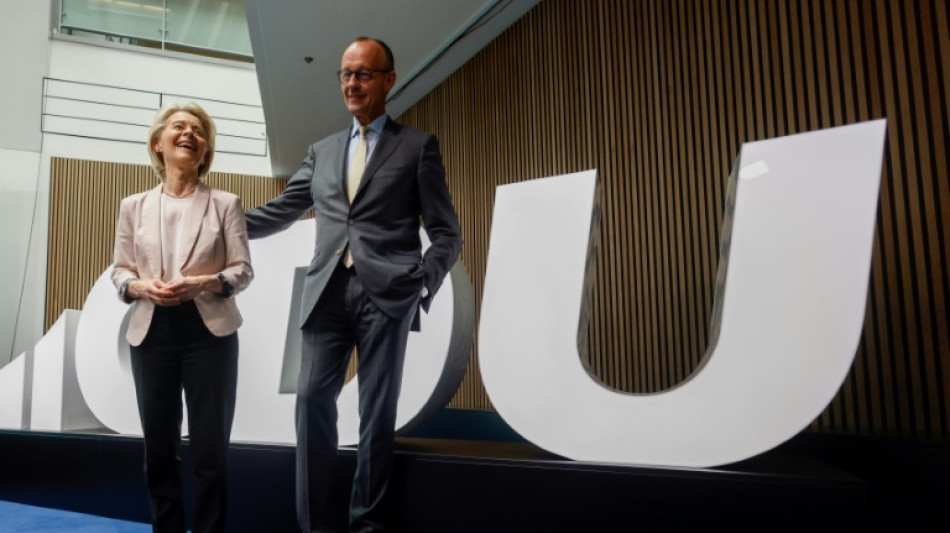
RBGPF
-0.6700

Germany's Friedrich Merz makes his maiden trip to Brussels Friday with expectations riding high that the changing of the guard in Berlin can bring fresh momentum to Europe at a time of dizzying global challenges.
After back-to-back trips to Paris and Warsaw signalling his intent to cement ties with both neighbours, Merz's swift visit to the EU capital shows his resolve to restore Germany's role in Europe following months of political paralysis.
"It was high time," summed up one EU diplomat. "We are waiting for, and we need, a strong Germany, one that's able to tackle the tough work ahead."
Germany's European Union comeback is not expected to be all plain-sailing.
Elected on a pledge to clamp down on migration, one of the conservative chancellor's first steps in office was a unilateral move to reject most asylum seekers at Germany's borders -- to the notable displeasure of Poland.
But it is no secret many in Brussels will be glad to see the back of Merz's predecessor, Olaf Scholz, after what was often seen as an underwhelming tenure at the helm of Europe's largest economy, from 2021 to 2025.
"Germany under the leadership of Olaf Scholz had a pretty negative reputation," said Guntram Wolff, of the Bruegel think tank. "Scholz would always call Washington first," he said. "I think there is hope that Friedrich Merz will be more turned towards the EU."
"We have very high expectations of the German government," confirmed Finland's foreign minister, Elina Valtonen.
- A 'very European' leader -
In an interview upon taking office this week, the chancellor -- who speaks fondly of his youthful years as an EU lawmaker from 1989 to 1994 -- promised to be a "very European" leader.
Merz will be spelling out his priorities in a succession of press conferences on Friday, with EU chiefs Ursula von der Leyen and Antonio Costa, and NATO secretary-general Mark Rutte.
But he has already made them clear: supporting new trade partnerships, including with the United States, striking a balance between EU climate action and support for industry, curbing migration, and most crucially, bolstering Europe's defence capability.
Brussels is looking to Germany to play a key role in driving the continent's rearmament -- faced with US disengagement and war on its doorstep in Ukraine.
The chancellor's visit will come as Vladimir Putin gathers a cohort of allied leaders for a World War II victory parade in Moscow -- underscoring the growing threat posed by Russia on Europe's eastern rim.
- 'Same language' -
Merz and his Social Democrat (SPD) coalition partners have already affected a sea change in fiscally conservative Germany, changing the constitution to enable mass borrowing to upgrade the country's defence and infrastructure.
In that spirit, he has given strong backing to steps by Brussels to free up hundreds of billions in additional defence spending by member states, including by relaxing the bloc's fiscal rules.
Merz's most closely watched meeting will be with Commission chief von der Leyen -- a fellow German conservative who has described the incoming chancellor as a "friend".
"They speak the same language," summed up Wolff. "They come from the same party, they have ideas in common, a shared background, they grew up in a period of European integration."
The two are expected to collaborate closely on the critical matter of trade -- where Germany's export-driven economy is especially vulnerable to President Donald Trump's tariffs campaign.
Yet that does not rule out the scope for disagreements -- particularly on immigration, where von der Leyen advocates EU-wide action and Merz has so far taken a go-it-alone national approach.
Q.Fiala--TPP